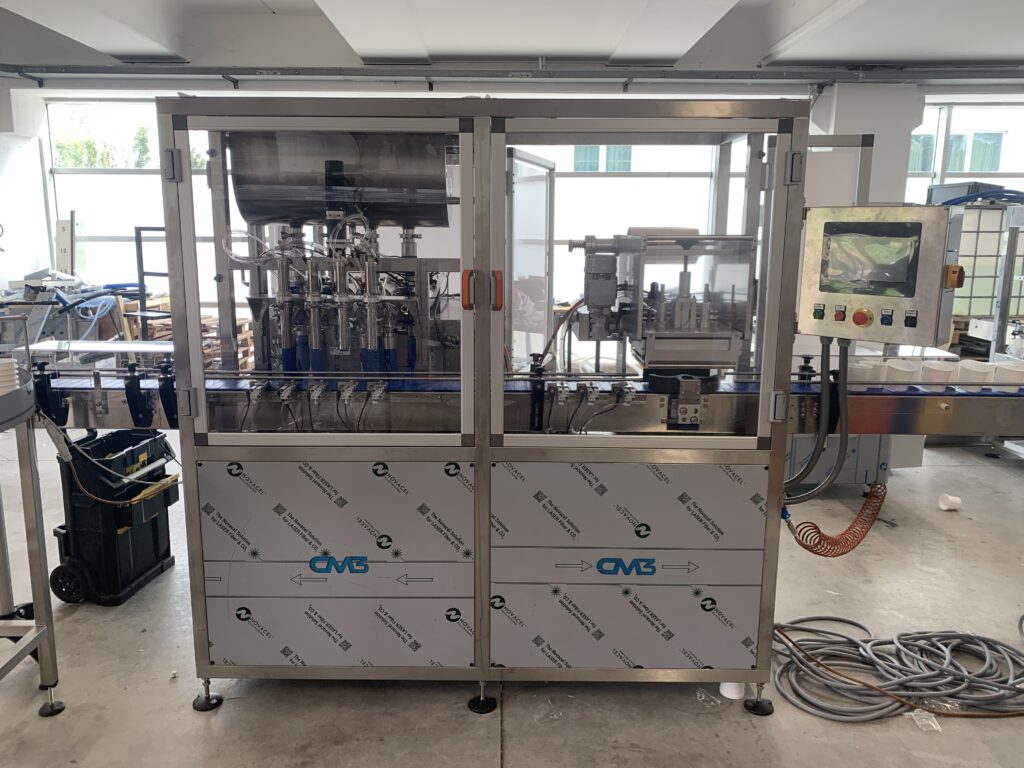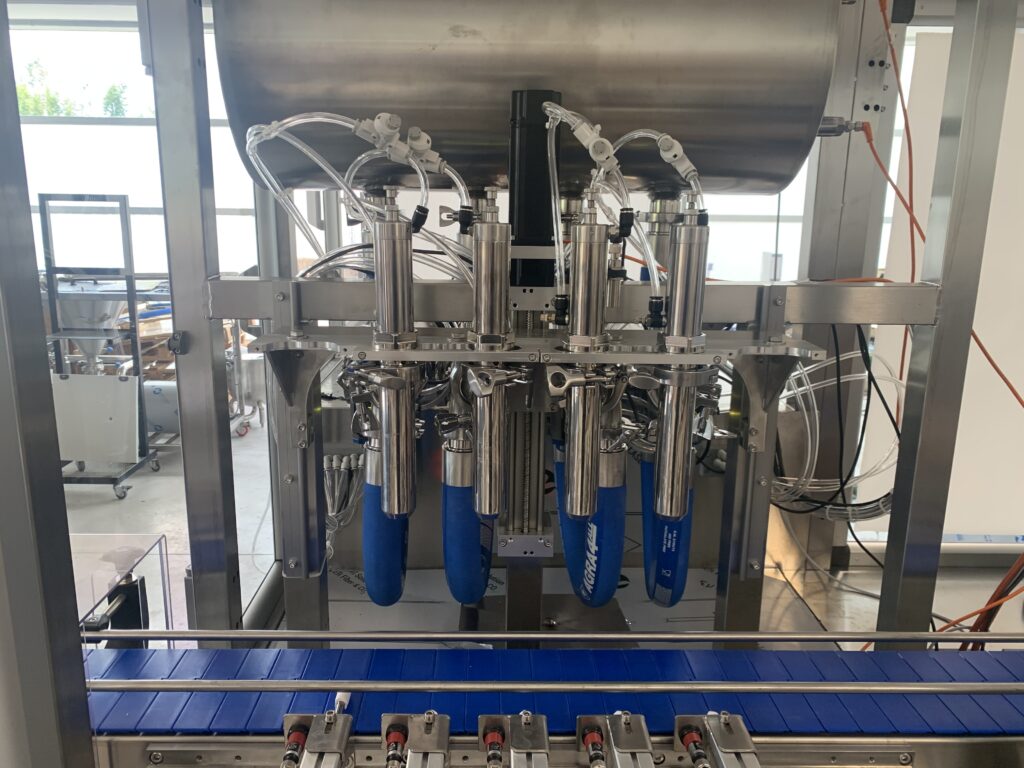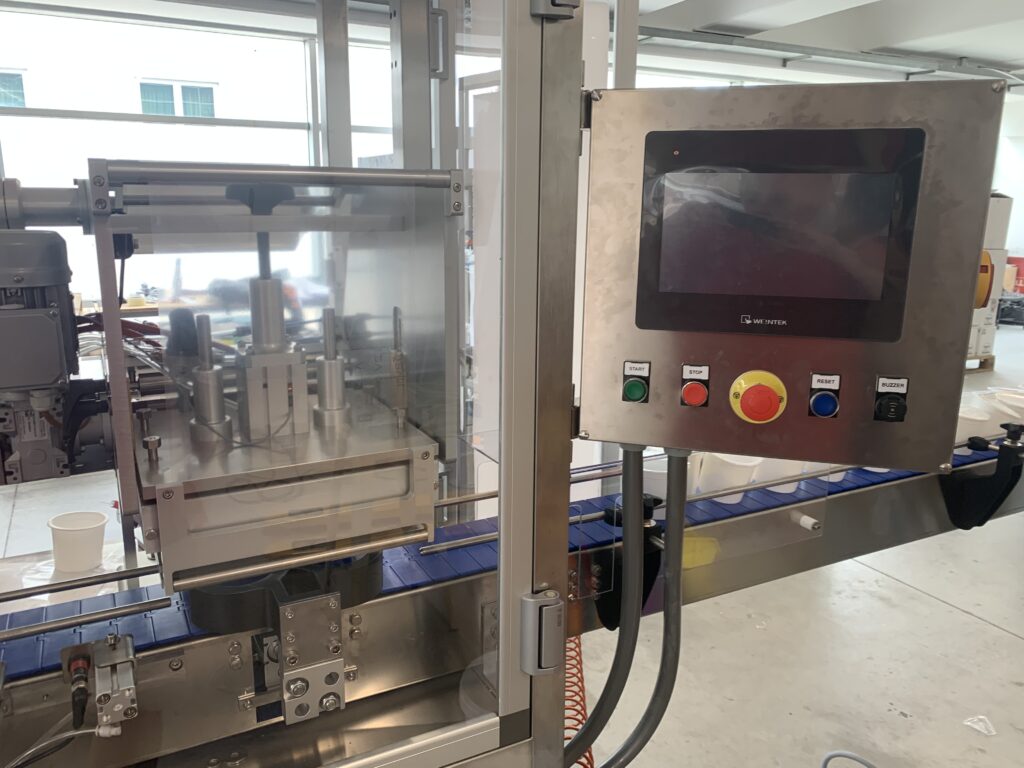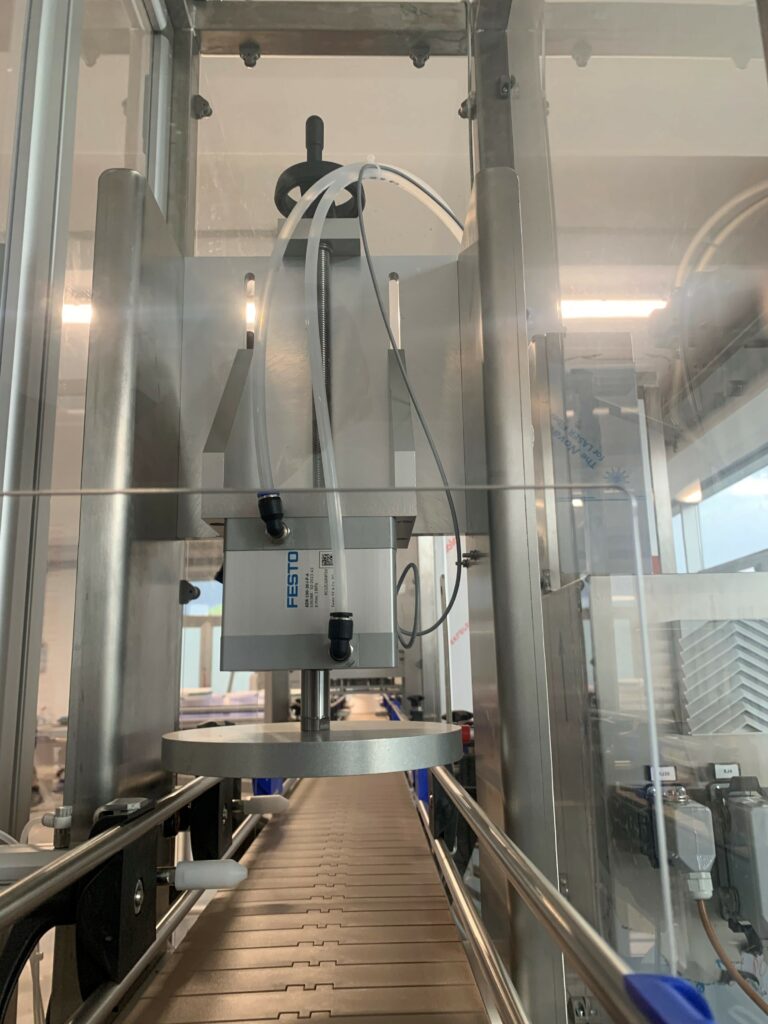This order involved the construction of a monoblock consisting of a 4-head dosing station with brushless motorisation and a station for heat sealing the film onto the container.
The product being filled is a particularly thick tomato sauce, so it was necessary to create a system that allows the product to be filled from the bottom of the container, which is why the 4 dispensing nozzles are designed to move up and down.
The line has been configured to handle 400 g and 2 kg formats in plastic and tinplate containers.
The production speed of the entire line is approximately 35 pieces/minute for the 400 g format.
Translated with DeepL.com (free version)

Photo of completed installation
The dosing unit installed is a 4-head volumetric unit made entirely of stainless steel and equipped with special seals capable of handling the product at temperatures up to 100°C. (photo 1)
There is also a mechanical handling unit and an electronic actuator with relative brackets and motorisation to better manage the dosing range and the system for raising and lowering the dispensing nozzles.
To complete the dosing unit, a 150 kg preload hopper with a level sensor has been installed.
The entire unit can be operated using a specific recipe that can be selected via a touch screen panel, where it is possible to view and modify the various parameters and drives for better management of dosing times based on the viscosity of the product.

Photo 1 – 4-head motorised volumetric dosing unit with dispensing nozzle lifting and lowering system
The heat sealing station (photo 2) consists of a single plate heat sealing head for the 2 kg format and a double plate head for the 400 g format to increase line speed.
The clamping tongs have been custom-made to fit the container and are specifically designed to allow quick and easy format changes.

Photo 2 – detail of heat sealing station and touch screen panel
At the inlet of the monoblock there is a rotating loading table with a diameter of 1,000 mm, while at the outlet the system will be connected, after the pasteurisation unit, to a pressure capping monoblock. (photo 3)

Photo 3 – detail of pressure capping station
The line was completed in approximately four months from the order and receipt of samples and is an excellent solution for a wide range of formats and products in the food and cosmetics sectors where containers need to be filled and heat-sealed.
Finally, the software for the entire line is equipped with a special washing cycle and a system that allows remote connection for remote assistance activities.
